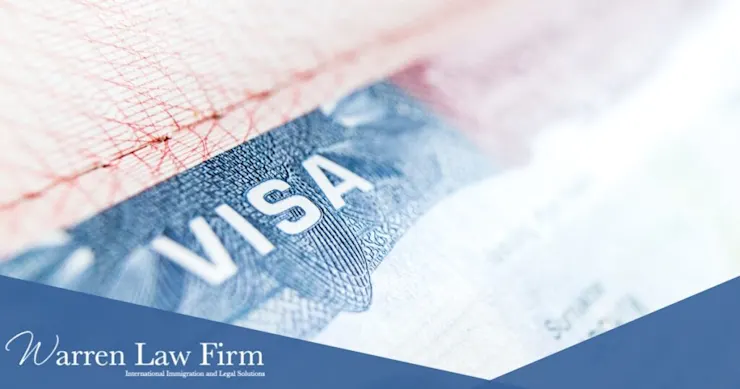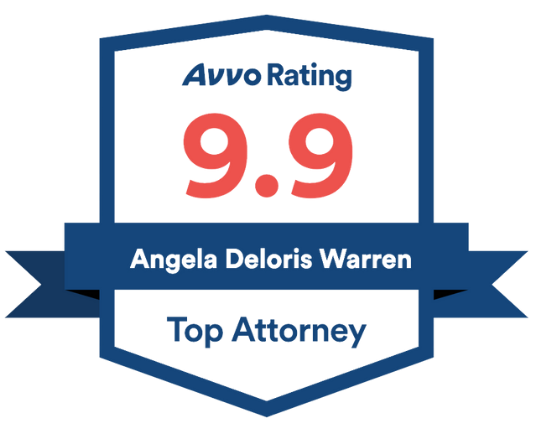EB-3 Visa
Home » Work Visas and Employment Green Cards » EB-3 Visa: Employment-Based Immigrant Visa

Employment-Based Immigrant Visa
An EB-3 visa is an employment-based immigrant visa that allows certain workers to live and work in the United States permanently. The EB-3 visa is for workers that are considered “Third Preference” workers.
You may be eligible for an EB-3 visa if you can prove that you fit into one of these three EB-3 occupational subcategories:
- A skilled worker
- A professional
- Other workers
At Warren Law Firm, we treat our clients with dignity and compassion. We know that people interested in employment-based visas like the EB-3 immigrant visa like to have an idea of what to expect before consulting with an attorney. This guide will explain the differences between the occupational subcategories of EB-3 visas, discuss the steps for applying for an EB-3 visa, and tackle some of the frequently asked questions about EB-3 visas.
EB-3 Visa Guide
United States Citizenship and Immigration Services (USCIS) has categories for employment-based visas. EB-3 visas are an immigrant visa, which means that the intent is to allow the person to immigrate and stay in the United States indefinity. It’s not a green card, but with a couple extra filing of forms, a green card is often the next step after an EB-3 visa is granted.
USCIS’s employment-based immigrant visas are broken down into five categories. The categories are referred to as “preference immigrant” categories. They range from the most elite category known as an EB-1 priority worker to an EB-5.
Your employer must petition USCIS for your EB-3 visa using Form I-140, Immigrant Petition for Alien Workers. The petition must include an approved, individual labor certification. As part of the application process, your employer that is sponsoring your visa must show that they will be able to continue paying you the wage that they offered you. They can prove this by sending in an annual report, a tax return, or an audited financial statement with the petition. They have to include a job offer and it has to be a full-time, permanent job.
The EB-3 preference immigrant category can be broken down further into occupational subcategories as noted above. Below is a description of each of the EB-3 visa occupational subcategories.
Skilled Workers. As a skilled worker, you need to prove at least two years of training or experience. Your experience in your field cannot be temporary or seasonal to qualify you for this occupational subcategory. Also, as a skilled worker, you must meet the requirements of your job offer.
Professionals. As a professional, you need to prove that you have at least a U.S. baccalaureate or equivalent degree. Also, you must actually work in your profession.
Other Types of Workers. In the other types of workers subcategory, as an unskilled worker, you can usually meet the definition as long as you have a job offer for unskilled labor or work that isn’t temporary or seasonal.
How to Apply for an EB-3 Visa
To apply for an EB-3 visa, a Form I-140, Petition for Alien Worker must be filed with USCIS along with all the supporting documents, forms and evidence needed. Form I-140 is filed by the employer that offered you the job and is petitioning for your visa. It’s really important to get an immigration attorney’s help before turning in this petition for multiple reasons including the following:
- More employment visas are denied than approved often because consulates say they found a problem with the associated job offers. Just because an employer has an attorney they turn to for business, doesn’t mean the attorney is well-versed in immigration law. At Warren Law Firm, we are business and immigration lawyers.
- Along with the petition, your employer (and you) must submit an enormous amount of evidence to support it. There may be supplemental forms to file in addition to all the initial evidence.
- The denial rate of EB-3 visa petitions is remarkably high.
- Denials of EB-3 visas can occur over even simple mistakes on the petition.
- An employment-based visa can be denied over an old, almost forgotten criminal conviction. A lack of vaccination records can result in a denial too. An experienced immigration attorney will know exactly how and for which reasons to apply for a waiver for most Grounds of Inadmissibility that would otherwise ruin a perfectly good EB-3 petition.
- Filing a petition with an outdated USCIS form can mess up the petition process.
- Filing fees for forms like the I-140 are subject to change, and paying the wrong amount can get a visa rejected.
- Experienced immigration lawyers know what to look for and expect the unexpected.
- A skilled immigration lawyer will greatly increase the chance that your EB-3 visa will be approved.
Request A Consultation
Meet The Attorney
Angela D. Warren
With more than 20 years of immigration and business immigration experience, Angela Warren has helped hundreds of individuals, families and businesses.
Main Services




Get The Immigration Help You Deserve
EB-3 Visas: FAQs
 Does an EB-3 visa grant you a green card?
Does an EB-3 visa grant you a green card?
No, but an EB-3 visa is an immigrant visa, so when you have an EB-3 visa, you’re mostly there. If you are an EB-3 immigrant and you are in the United States, provided you meet other standard requirements, you will be able to immediately apply for a green card. Someone in the country on an EB-3 visa will file Form I-485, Application to Register Permanent Residence or Adjust Status to use their immigrant visa to get a green card. Attorneys can also file Form I-485 for their clients while the visa petition is pending or even at the same time.
Can my Form I-140 be sped up?
While you can pay for Premium Processing and file Form I-907, Request for Premium Processing Service, there might be situations where your lawyer might not recommend it for processing an EB-3 visa petition.
If I’m approved for an EB-3 visa, can my family come with me to the United States?
If your EB-3 visa petition is approved by USCIS, your spouse and your unmarried children who are under the age of 21 may be eligible to apply for visas as derivative applicants.
Let an Experienced Immigration Attorney Help You Get an EB-3 Visa
Warren Law Firm in San Francisco, California has over 20 years of experience in immigration and business immigration law. If you are seeking an employment-based visa, our skilled immigration team will fight for you. We help bring people’s immigration dreams to life every day with commitment to and respect for our clients. We look forward to learning how we can help you achieve your immigration dream.
